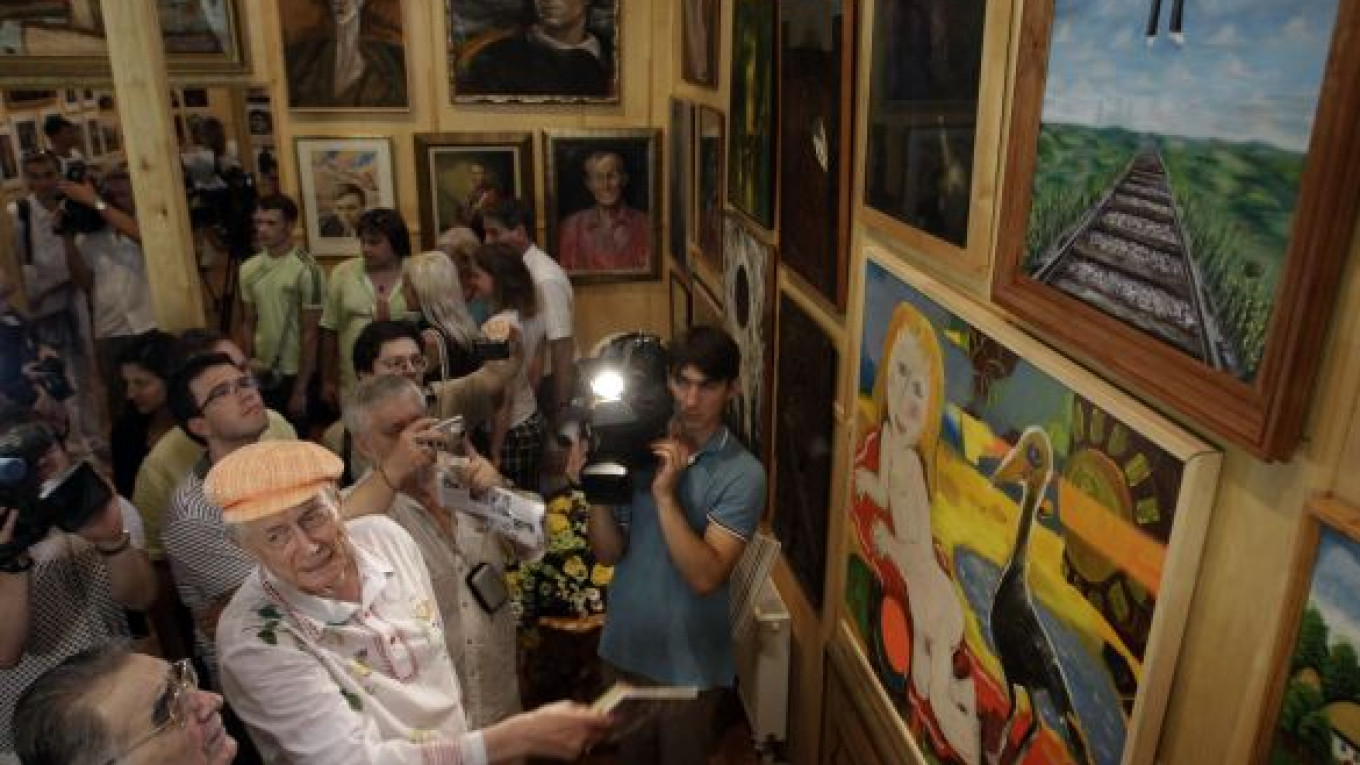PEREDELKINO, Moscow Region — Yevgeny Yevtushenko, Russia's most renowned living poet, has given his house along with an extensive art collection to the state as a museum.
The two-story museum in the writer's colony of Peredelkino, just outside Moscow, joins nearby house-museums, including those of Boris Pasternak and Bulat Okudzhava. It contains paintings by Marc Chagall, Joan Miro, Pablo Picasso and Georges Braque.
The museum also exhibits Yevtushenko's photographs from his travels in Siberia, China, Italy and the Middle East, and items collected during his life, among which is American writer Mark Twain's cane.
Yevtushenko, who opened the museum at a ceremony Saturday, came to prominence during the Soviet Union's cultural thaw under Nikita Khrushchev.
One of his best-known poems is 1961's "Babi Yar," which denounces anti-Semitism and the failure of Soviet authorities to build a monument commemorating the Nazi massacre of Jews near Kiev.
At the height of his fame, Yevtushenko read his work in packed football stadiums and arenas. There was a recital in 1972 in New York's Madison Square Garden, an audience of 27,000 in Mexico City, and a crowd of 200,000 in 1991 who came to listen during a failed coup attempt in Moscow.
Yevtushenko, who turned 77 on Sunday, has traveled to 96 countries and now divides his time between Moscow and Tulsa, Oklahoma, where he teaches poetry at the University of Tulsa.
Before cutting the ribbon, Yevtushenko read his recent poem, "U.S.S.R. - FRG 1955. (Reportage from past century)," about a football game that brought Russian war veterans and Germans together 10 years after the end of World War II. He expressed hope in the future.
“I grew up during the Cold War, now it is a time of 'Cold Peace,'” Yevtushenko said.
The director of the State Museum of Contemporary History of Russia, Sergei Arkhangelov, said poets in Russia have a vital social role.
"A poet in Russia is not just a poet; it is a role of an activist," he said. "The development of Russian intellect is tied to him. For us it came through these works, tied to his name."
The museum will open this week. Besides its permanent exhibition, it will feature shows by contemporary Russian artists, poetry readings and a library of archives.
A Message from The Moscow Times:
Dear readers,
We are facing unprecedented challenges. Russia's Prosecutor General's Office has designated The Moscow Times as an "undesirable" organization, criminalizing our work and putting our staff at risk of prosecution. This follows our earlier unjust labeling as a "foreign agent."
These actions are direct attempts to silence independent journalism in Russia. The authorities claim our work "discredits the decisions of the Russian leadership." We see things differently: we strive to provide accurate, unbiased reporting on Russia.
We, the journalists of The Moscow Times, refuse to be silenced. But to continue our work, we need your help.
Your support, no matter how small, makes a world of difference. If you can, please support us monthly starting from just $2. It's quick to set up, and every contribution makes a significant impact.
By supporting The Moscow Times, you're defending open, independent journalism in the face of repression. Thank you for standing with us.
Remind me later.


